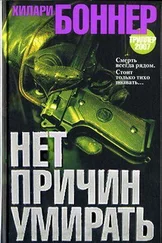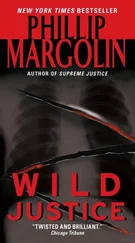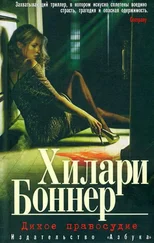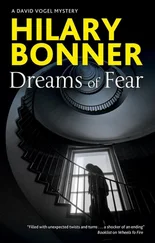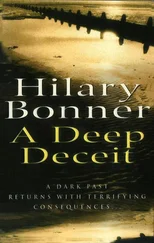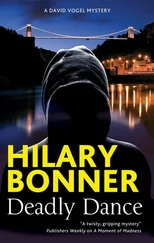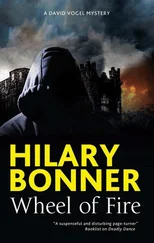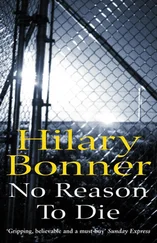Lady Slater interrupted again, leaning forward, thin lips pursed in disapproval. ‘Did you say European, Mr Nuffield?’ she enquired.
‘Well, yes, Your Worship, but...’
‘And I think you just told us, did you not, that this Article Four of the Human Rights Convention, to which you referred, is not in fact the law of the United Kingdom?’
‘Well, not exactly, Your Worship, but the Act makes it quite clear that the rights laid down in the European Convention should be deferred to whether or not they are actually United Kingdom law...’
‘Not in my court, Mr Nuffield. I am presiding over an English Magistrates’ Court and until I am actually bound by European law I can assure you I have no intention of deferring to it.’
Christ, she’s a dyed-in-the-wool Euro-sceptic, thought Joanna. That was all they needed. She had to be, of course. A woman who wouldn’t allow her territory to be invaded by what had actually been a very necessary reservoir was highly unlikely to be impressed by the demands of Strasbourg.
Nigel Nuffield had his back to Jo, but she could tell that he was dumbfounded. You didn’t encounter the likes of Davinia Slater at the Old Bailey or the Law Courts on the Strand. The officialdom of London bowed more and more towards Europe, as indeed it had to do. But it wasn’t like that in Okehampton yet. This was factor X. Any idea originating in Europe had to be a bad one. Jo had not given that a thought and neither, she suspected, had Nigel Nuffield. Davinia Slater was a dinosaur in every respect and Jo hadn’t realised that magistrates like her still existed. They did in Okehampton, apparently.
The clerk saved the day, albeit only momentarily. He approached the bench again. Once more Jo was able to catch odd phrases: ‘Should be seen perhaps to take into account’. ‘Must be careful not to be unlawful’.
The furrow in Lady Slater’s brow deepened. However, she seemed to have been persuaded that at least her court should listen. Even if grudgingly.
‘Very well, Mr Nuffield. You may continue. I assume you are going to tell the court that you have new evidence sufficient to warrant the extraordinary measures you are suggesting?’
In reply, Nuffield asked the defence if O’Donnell would come to the stand.
‘Of course,’ responded Brian Burns smoothly. ‘We are all here today in the interest of justice.’ Nuffield ignored him as Jimbo made his way to the dock.
‘Mr O’Donnell, do you know what DNA evidence is?’ he asked.
‘Not really, sir, I just know I never did anything to that girl.’
‘DNA is a genetic blueprint. For example, were your DNA found in relevant samples taken from Angela Phillips, that would give absolute proof that at the very least you must have had sexual contact with her.’
Jo wasn’t quite sure what Nuffield was doing. He was skating on thin ice, that was for certain. She reminded herself that all the barrister had to do was persuade the magistrates to allow the case to go forward for jury trial.
Predictably Brian Burns rose to his feet at once to object. ‘I would remind the court that no attempt at any such DNA match would be either lawful or indeed possible in this case, as there are no admissible DNA samples available,’ he said. ‘Only DNA extracted specifically in regard to the particular charge my client faces could, of course, be admissible.’
Lady Slater’s frown deepened even more. The clerk approached the bench again and there was another conflab, this time in voices so low that Joanna could not catch a word.
‘This is surely not the alleged new evidence to which you earlier referred, is it, Mr Nuffield?’ the chairman of the magistrates asked eventually.
‘Partly, Your Worship,’ admitted Nuffield.
‘But I am advised that all such evidence is indeed inadmissible.’
Nuffield threw back his shoulders and projected his voice in his most theatrical and what he presumably thought his most impressive manner. ‘At this stage and in this court, yes, Your Worship. However, if Your Worship were to commit the defendant for trial this would allow admissible DNA samples to be taken from him. I have reason to believe that such samples would link him inexorably with Angela Phillips. That is the new evidence to which I have referred.’
‘But Mr Nuffield, you know very well that we can only pass judgement based on evidence which is admissible in this court.’
Of course he knew. But Nigel Nuffield also knew exactly where he was leading. ‘Indeed, Your Worship,’ he boomed. ‘I would therefore like formally to ask the defendant if he will voluntarily submit to a new DNA test, a blood test, perhaps, the results of which would of course then be admissible in any court. Surely, if he and my learned friend are to be believed then Mr O’Donnell would be anxious to clear up this matter without question.’
Jo thought that was a highly convincing ploy and Nuffield’s confident authoritative manner was awesome. This was a man with virtually no concept of failure.
However, before she could begin to share his apparent confidence a little more, Brian Burns was quickly on his feet. ‘Your Worships, my client would be more than happy to submit to a blood test, but unfortunately he has a phobia against needles. This is, as I am sure Your Worships knows, a medical condition, from which my client has suffered since he was a child.’
Joanna could barely believe her ears. This was farcical. Yet everyone in the courtroom seemed to be taking the protestation perfectly seriously. She remembered with foreboding the case of a famous Fleet Street columnist who had claimed needle phobia as a defence against a charge of refusing to take a blood test after being arrested on a drink-driving offence. He was acquitted.
Looking at big, burly O’Donnell in the dock, the thing was too absurd for words.
But Lady Slater, bless her, was at least not rolling over. ‘There are other methods of obtaining admissible DNA evidence, are there not, Mr Burns, and would your client not submit to those either?’ she enquired frostily.
Thank Christ, thought Jo. She mightn’t like Europe, but she’s no fool. Maybe Nuffield could still pull it off.
‘Your Worship, we both feel that my client has suffered enough indignities,’ replied Brian Burns. ‘This case has been trumped up against him by people who will not accept the proper verdict of a court of law twenty years ago. My client is an innocent man and as a matter of principle should not be submitted to further tests.’
All three magistrates looked unconvinced. For a fleeting moment Jo began to feel almost optimistic. She should have known better.
It was almost as if Brian Burns were playing a game with the court. Being a barrister, he quite probably was, Jo thought later. He played his trump card then. And it was an ace. ‘In any event, Your Worships, I would submit that even if a new DNA sample were on offer, and whether or not this were volunteered by my client or taken with or without his permission after his committal to trial, such a sample would still be inadmissible.
‘I must draw the court’s attention to the case of Michael Weir whose conviction for murder was overturned by the Court of Appeal in May this year on the grounds that although the prosecution had offered as evidence DNA obtained from a second sample taken when Weir was arrested for murder, without a first ineligible sample from an unrelated crime he would never have been linked to the murder scene.’
The magistrates looked a bit bewildered. The clerk approached the bench yet again. There followed two or three minutes of sotto voce mutterings and head noddings, once more quite inaudible.
The PACE ruling that DNA samples could not be used in any investigation other than the one for which they were acquired was bad enough — when you took it a stage further like this it made a nonsense of science as well as justice, Jo thought. But she had not known about the Michael Weir case and neither, she feared, had Nuffield. She reckoned the barrister had not done his homework as well as he might have. She suspected that Nuffield had long ago reached that stage in his glittering career where he no longer believed he could lose, and it suddenly looked to Jo as if this might be the case where this would finally work against him and all those who had risked so much to put O’Donnell in the dock again. Her heart sank.
Читать дальше



